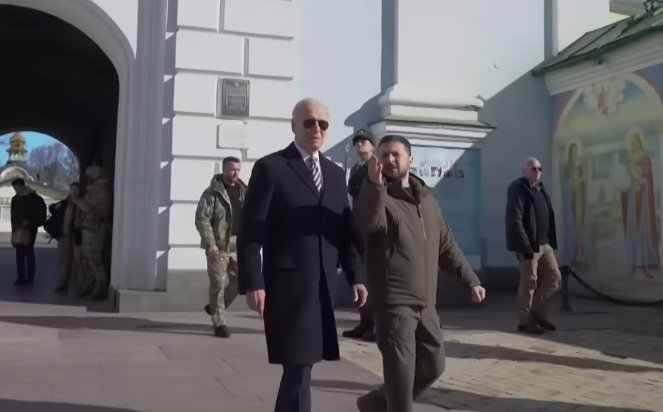Politics
Zelensky Humiliated After Getting Rejected From Making Special Appearance On The Oscars For Second Year In A Row

Ukrainian President Volodymyr Zelenskyy’s attempts to secure a spot on this year’s Oscars telecast have been unsuccessful for the second year in a row. While the leader has been warmly received by various awards shows and film festivals, including a remote appearance at last month’s Berlin Film Festival, the Academy has ignored his hopes of making a virtual appearance at the Oscars.
Sources suggest that Zelenskyy’s agent, Mike Simpson, attempted to persuade the Academy to feature the comedic actor-turned-politician but was unsuccessful. The Academy declined to comment on the matter, leaving many wondering why the Ukrainian leader was overlooked once again.
However, some people are not supportive of granting Zelenskyy more screen time. Last year, Oscars producer Will Packer vetoed Zelenskyy’s appearance, citing concerns that Hollywood’s attention to Ukraine was solely due to the conflict’s impact on white people. Packer argued that Hollywood has neglected to address conflicts around the world that affect people of color. Packer did not respond to requests for comment, leaving the reason for Zelenskyy’s rejection this year unclear.
Despite the lack of airtime for Zelenskyy, the Academy has historically preferred to emphasize the film industry’s contributions and avoid political topics. While some may support Zelenskyy’s inclusion in the Oscars telecast, it seems that the Academy has chosen to focus solely on the art of filmmaking.
There are just a few examples, but there have been instances where the Oscars have recognized films or individuals that address issues related to war and conflict.
For example, in 2015, the Oscar for Best Documentary Feature was awarded to “Citizenfour,” a film about Edward Snowden, a former National Security Agency (NSA) contractor who leaked classified information about US government surveillance programs. Snowden, who was living in Russia at the time, appeared via satellite to give his acceptance speech.
In 2016, the Oscar for Best Documentary Short Subject was awarded to “A Girl in the River: The Price of Forgiveness,” which tells the story of a Pakistani woman who survived an attempted honor killing. The director of the film, Sharmeen Obaid-Chinoy, is a Pakistani journalist and filmmaker who has covered a range of human rights issues, including the impact of the war on terror on civilians in Pakistan.
When Hollywood says no to having President Zelenskyy appear on the Oscars, it can have several implications. Firstly, it could suggest that Hollywood is prioritizing the entertainment industry over politics. The Academy has historically focused on celebrating the art of filmmaking and has often shied away from getting involved in political issues.

